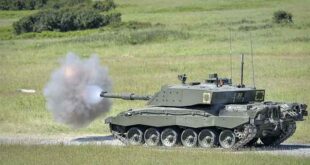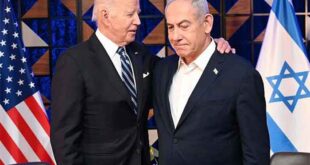The EU and Asia are undergoing rapid changes in an increasingly globalised World. The Asian trade community is gripped with fear and Asia’s economic growth will get to a slowdown because of the impact of coronavirus. The slowdown would be worse than the global financial crisis of 2008-09 and the Asian financial crisis of 1997.
Hence, the EU has been increasing its engagement in Asia. The main reason for the enhanced engagement are the significant economic interests the EU has in the region and its concern about recent developments which have raised tensions. The conflict over the South China Sea and the nationalism associated with it are identified by the European Union as the biggest risk factor.
In order to help reduce the risk, the EU should set out its own ideas for Asian security and work with Asian partners to promote them, and discover creative solutions that benifit the Asian partners and the EU.
The EU economy needs frameworks that enable flexibility, creativity and speed. The EU can prepare geopoliticaly by investing in Asia’s political architecture and by realising that Asia is more than just China.
There are many shared interests between the EU and Asia covering political, security, economic and social issues.
On issues of trade and economics, the EU is clearly showing that it has a strategy that it is implementing. Strengthening the EU-Asia side would strengthen the prospects for global governance based on multilateral institutions to which both Asia and the EU are strongly committed.
Concerning the linkage between the economic and security relations between the EU and Asian countries, we should not forget the prominent role of China. The security at sea, for example, on the maritime Silk Road path, is an area where economy and security are entangled together. The Malacca Straits represent for China, one of the main security issues concerning energy trade.
The role that China is aiming to play as a security provider on the Sea Lines of Communications(SLOCs) could represent a challenge to the world maritime security.
On the other hand, it could as well as represent a common ground for future collaborations. Collaboration with China in strengthening the SLOCs security could be extremely beneficial in a time when European countries defence budgets are shrinking.
The lack of a substantial military presence in Asia gives the EU greater freedom of maneuvering to pursue its trade strategy without criticism about containment from China.
The EU has also an interest in engaging with Asia on common security challenges outside Asia, especially in around Africa and the Middle East. The EU cannot promise aircraft carriers sailing through Asian waters, but many if not most of today’s security issues can be mitigated if not resolved through soft security measures which is the EU’s strength.
With ASEAN, the EU stands at an interesting new point for increased cooperation. The EU could now reboot cooperation on a more equal base with ASEAN. ASEAN as well as the European Union have difficulties in getting their joint voice heard and both are split internally by outside powers.
Now, opening quickly the talks on the EU-ASEAN Free Trade Agreement becomes more strategically important. The European Union sealed free trade agreements with Singapoure, Japan and Vietnam.
With the increasing economic importance of Asia for the EU economy, the reduction of market access barriers in Asian countries and the creation of a level playing field will be more important than ever.
The strong standing of the EU as an active and constructive member of the ASEAN Regional Forum is because it is seen as an engaged but not threatening, active but without geopolitical agenda.
Asian leaders can no longer rely exclusively on Uncle Sam and they do not wish to fall under Chinese steamroller.
There is thus a new found enthusiasm for the EU as the principal defender of a rule based order. In this way, the EU has a niche, in which it could engage as a supper partner and not as another superpower.
The EU has realised that if it wants to have an impact in Asia, it will have to take an active part in security discourses that have so far been dominated by the region’s big powers: China, Russia and the United States.
The European Union contributes to Asia’s regional security by supporting multilateral initiatives. Not any longer. Should the EU be afraid to criticise the major Asian powers when it perceives their action to be harmful to Asian regional stability.
Furthermore, the European Union is not taking sides with Japan against China or vice versa. The EU is reinforcing the trend towards greater outspokenness on Asian affairs. There is a big difference between the EU and the other players in Asia.
While several seems primarily aimed at keeping China in check by focusing on strengthening it security alliances in the area, the EU pivot to Asia by contrast is not aimed against any particular country in the region.
The European Union should abandon its efforts to transfer it own post-war solutions to the Asian situation. Instead, it should focus on rewarding compromise and build on growing arms trade with the region to take a more central security role.
Arms transfers almost always involve security cooperation, whether in training, after-sales services, or continued upgrades. The EU is therefore a much more important security actor in Asia than many in the EU think it is, but the main thrust of weapon policy is developed by member states, with commercial considerations forming the most common factor.
The EU has developed a strong market presence in Asia especially in sales of naval units. Basing the European Union’s foreign and security policy in Asia on an alignment with U.S. policy is misguided.
American diplomacy is closely linked to American economic interests in the region. American and EU firms are in competition in many areas, such as in the fields of aerospace, transport equipment, public procurement, media and entertainment and telecom.
The European Space Agency (ESA) is jointly with several other Asian countries developing Galileo, a global navigation satellite system, offering the EU a foothold in Asia’s evolving space-related power relations.
Furthermore, several EU member states cooperate on counter-terrorism initiatives and on security issues in Central Asia, a crucial area for One Belt One Road.
Speaking out if the United States acts in a way that threatens stability in Asia, is the logical step in becoming an independent player in Asian affairs, and would strengthen the EU’s image as a neutral but engaged partner in Asian stability.
The challenge now for the European Union is to keep up its engagement, develop an independent voice and uphold a long-term commitment to strengthening stability in the region. The market and political value of the EU Pivot to Asia should not be underestimated.
This allows the European Union to make its presence felt across the whole Asian policy spectrum and so to become an Asian power. It also allows Asian elites the possibility to play the EU card against the U.S., be it in the common currency, a free trade agreement or the purchase of a weapon system.
The European Union cannot remain indifferent to what is taking place in Asia because of the increasing inter-connectivity between Europeans and Asians. The EU should utilise the geo-economic potential of the EU-Asia connectivity strategy and back it up with necessary financial resources and decision making powers.
The interconnectedness of security in Asia and Europe has been illustrated by the ongoing crisis in Ukraine. The EU does not expect Asians to remain neutral between the EU and Russia over the crisis in Ukraine. But, conversely Asian expect the EU to side with those in Asia who oppose any change of status-quo by force or coercion.
Falling in line behind the U.S. ensures that the United States will find its way into Asian markets before the EU does, as well as allowing the United States a better position to negotiate terms for market entry.
The EU efforts to play a more active global role will require closer engagement, cooperation and dialogue with rapidly changing and increasingly dynamic countries of Asia.
The EU should take the global leadership role in sustainability and position itself as an attractive partner for Asia. This applies to technology, business model as well as emission and behavioural standard.
For Asian leaders it is time to deepen relations with the largest trade block in the world and reach a wide ranging political agreement that should lead to closer foreign policy cooperation between the EU and ASEAN.
Effective solutions to global challenges can only be developed and implemented in dialogue with Asian states.
At the same time it is necessary for Asians to pay more attention to developments within the European Union, to support efforts to improve educational and cultural exchanges and to try and overcome differences on human rights and other issues.
The European union has the potential to shape the role it wants to play in Asia. It should deepen relationships with like-minded democracies in the region. With the EU’s foreign and trade policy, the aim should be to manage the balancing act of addressing problems openly and tackling them in partnership without turning to accusations and sanctions.
The EU has a new reality to face in Asia. It does not have an automatic seat at the Asian table and therefore it must work harder to secure its own self-interests. It should focus on institution building and rethink how it can help bolster ASEAN. The European Union needs to think and act bigger, quickly and develop a much more aggressive pivot to Asia.
 Eurasia Press & News
Eurasia Press & News



